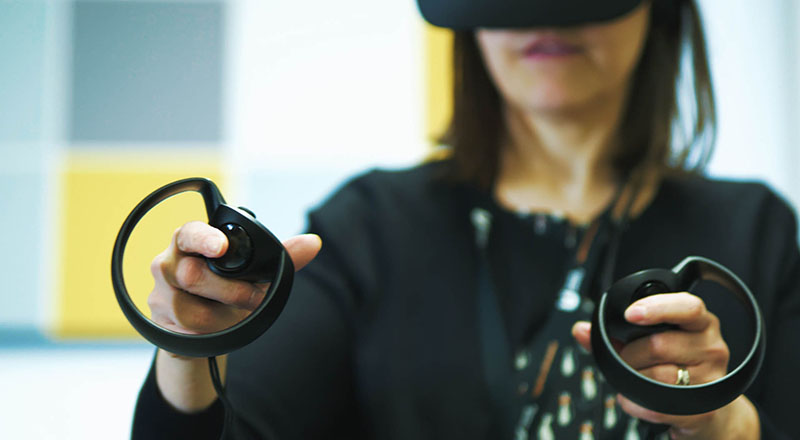
Virtual reality solutions helping to improve bioscience training

The research is being carried out at the National Horizon’s Centre, Teesside University’s £22.3 million UK centre of excellence for the bioscience industry.
Losses and mistakes within biopharmaceutical processes can be significant, with the potential to cost millions of dollars in lost batches. Process operators can be exposed to anomalous situations which are difficult to train and prepare for in a live, lab-based environment.
The National Horizons Centre team, led by Professor Gary Montague and Dr Mahmudul Hassan has created a realistic virtual learning environment to simulate the operation of a bioproduction plant and actively engage with virtual emergency scenarios.
The first phase of work has been launched using the Applikon Bioreactors which currently reside in the National Horizons Centre which is based at Teesside University’s Darlington campus.
Glenn Robinson of Applikon Biotechnology, part of Getinge, a world leader in developing advanced bioreactor systems said:
‘We at Applikon, see a big potential for the use of virtual reality (VR) with training our customers new to fermentation.’
By sharing their 3D models, researchers have been able to develop the virtual scenarios for users to undertake a series of interactive activities and follow standard operating procedures using both virtual reality headset controllers and bare hand interactions.
Additional work includes the development of an Artificial Intelligence module which can track a user’s performance to monitor and assess training needs across individuals and user groups.
Professor Montague said:
‘The VR simulation training enables trainers to observe, analyse and evidence how trainees respond to a range of complex bioprocessing scenarios in a safe, anytime, anywhere learning environment.
‘People naturally learn best from their mistakes and our VR simulation training allows trainees to rehearse scenarios and safely see the implications of their actions without the associated cost and safety implications inherent in using actual reagents and equipment.’
This work forms an important part of the wider THYME Project, which is a collaboration between three UK Universities (Teesside, Hull and York) to improve productivity within the bioeconomy across the Yorkshire, Humber and Tees Valley region.
For more information on the National Horizons Centre click here.
By Teesside University
912 Views



